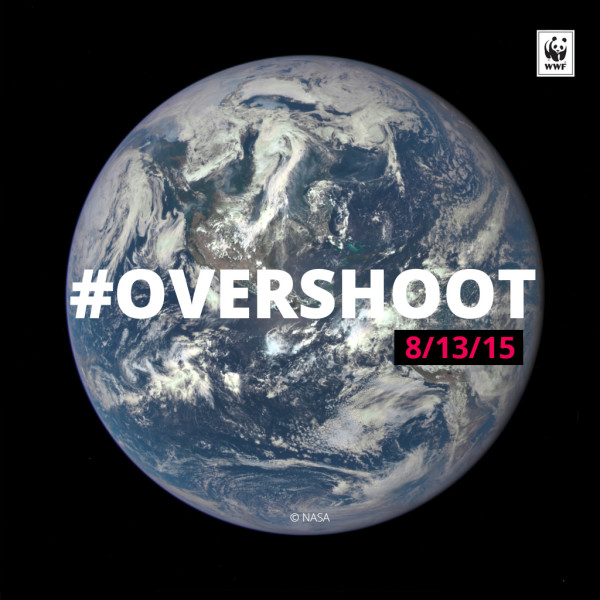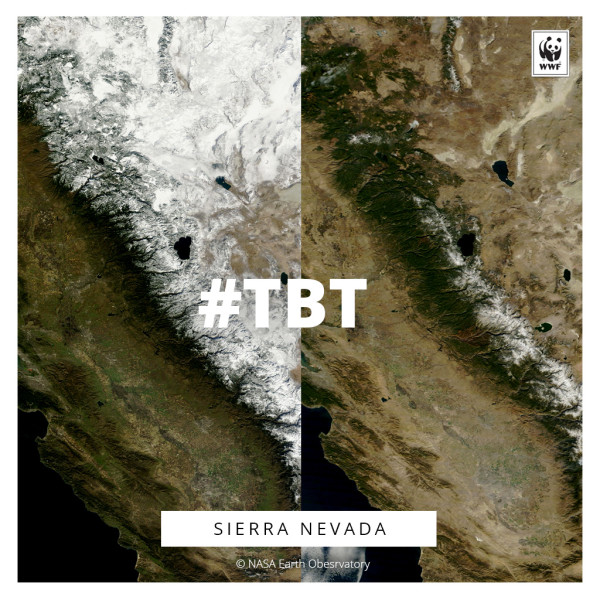Shooting past our expiry date
Earth Overshoot Day marks the day when global demand for ecological resources and services exceeds what the earth can restore in a given year. The first Earth Overshoot Day occurred in October 1970. Since then it’s occurred earlier and earlier, illustrating the growing imbalance between global consumption and nature’s limits.

Today, we’re consuming natural resources at a rate equal to 1.6 Earths.
Increasing consumption of non-renewable sources of energy, freshwater and land for agriculture is exacting a devastating toll on nature. WWF’s 2014 Living Planet Report showed a shocking 52 per cent decline in wildlife worldwide in just four decades.
At WWF-Canada, we’re determined to show that it’s possible to reverse this trend by rethinking consumption and moving to an economy that respects natural limits.
We’re working across Canada with a wide array of partners and individuals to develop strong examples of how healthy habitats and vital, economically stable communities can go hand-in-hand. All our Arctic, oceans, freshwater, Prairie and community programs and projects are dedicated to this goal.

Our Habitat-Friendly Renewable Energy program, for example, is working out how to reduce climate-changing greenhouse gas emissions in a way that protects critical species habitat and provides reliable, lower-cost clean energy. Our Low-impact Fisheries for Community Prosperity is focused on how to sustainably manage regional fisheries, providing food for people and larger marine mammals such as whales, while ensuring that fish stocks remain at healthy levels and local jobs are created and secure.
Earth Overshoot Day reminds us that we’re drawing too heavily on nature and that the consequences include increasingly severe climate disruptions and the drastic drop in species populations worldwide. The conservation programs at WWF-Canada reflect our conviction that there are better ways of doing things and that we can harness the creativity and commitment of millions of Canadians to build deeper, more enduring conservation solutions where humans live happily within nature’s limits.
